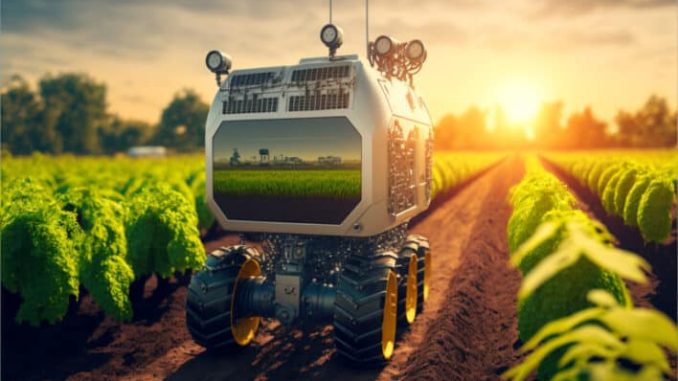
In the heart of nature’s simplicity, a technological revolution brews. The agricultural industry, once perceived as unchanging, has been undergoing a swift transformation, courtesy of FarmTech. From drone usage to precision agriculture, technology promises a brighter, more sustainable future for our fields and food.
- Digital Farms: Smart farms are no longer a figment of the imagination. With the integration of IoT (Internet of Things) devices, farmers can monitor soil moisture levels, track livestock, and manage resources more efficiently. The fusion of farming with the digital realm offers precise insights and reduces wastage.
- Drones in the Sky: Aerial drones provide farmers with a bird’s-eye view of their fields. Through advanced imaging capabilities, they help identify problem areas, ensuring targeted treatments. This not only saves resources but also boosts productivity and crop health.
- Precision Agriculture: One size doesn’t fit all! Precision agriculture tailors farming practices according to specific plot needs. With sensors and GPS technology, farmers can dispense the exact amount of water, nutrients, and pesticides, maximizing yield and minimizing environmental impact.
- Automated Tractors: The dawn of autonomous machinery has arrived. Tractors and harvesters equipped with self-driving technology can work around the clock, eliminating human error and enhancing efficiency.
- Gene Editing: CRISPR technology is pushing the boundaries of what’s possible in crop genetics. By introducing favorable traits or eliminating unwanted ones, scientists can produce drought-resistant, high-yield varieties.
- Blockchain for Transparency: Consumers today demand transparency. Blockchain technology provides an immutable record of the farm-to-fork journey, ensuring accountability and boosting consumer trust.
- Vertical Farming: Urban areas are experiencing an agricultural renaissance. With vertical farming, crops grow in stacked layers, utilizing LED lights and hydroponics. This tech-driven approach reduces the need for land and combats the challenges of traditional farming.
- Aquaponics & Hydroponics: Water-based farming methods like aquaponics and hydroponics champion sustainability. By recycling water and nutrients, these systems produce both fish and crops in harmony, drastically cutting down on resource consumption.
- Artificial Intelligence (AI): AI algorithms can predict weather patterns, detect diseases, and analyze market trends. By leveraging this data, farmers can make informed decisions, enhancing profitability and sustainability.
- Robotic Harvesters: Picking fruits and vegetables is labor-intensive. Enter robotic harvesters. These machines, equipped with sensors and grippers, can pick ripe produce with precision, reducing wastage and labor costs.
- Wearable Tech for Livestock: Livestock management is easier with wearable technology. Tracking devices monitor animal health, detect diseases early, and optimize breeding strategies.
- Data-Driven Decisions: Big data isn’t just for tech giants. In agriculture, data analytics provides insights into soil health, crop rotations, and market demand, steering farmers towards smarter, evidence-based choices.
- Solar-Powered Farms: Renewable energy is making its mark in the fields. Solar panels provide a sustainable power source, driving down operational costs and reducing the carbon footprint of farms.
- AgriTech Training: For FarmTech to truly take root, farmers need to be tech-savvy. Educational programs and workshops are bridging the knowledge gap, empowering farmers with the tools they need.
- Future of FarmTech: As technology evolves, so will FarmTech. From augmented reality (AR) to quantum computing, the possibilities are boundless. A convergence of tech and tradition is shaping a resilient and prosperous agricultural future.
In conclusion, the melding of technology with agriculture is not merely a trend – it’s a necessity. As the global population burgeons and resources deplete, FarmTech stands as our beacon of hope, ensuring food security, sustainability, and a greener tomorrow. Embracing this revolution is not just an option; it’s our responsibility.